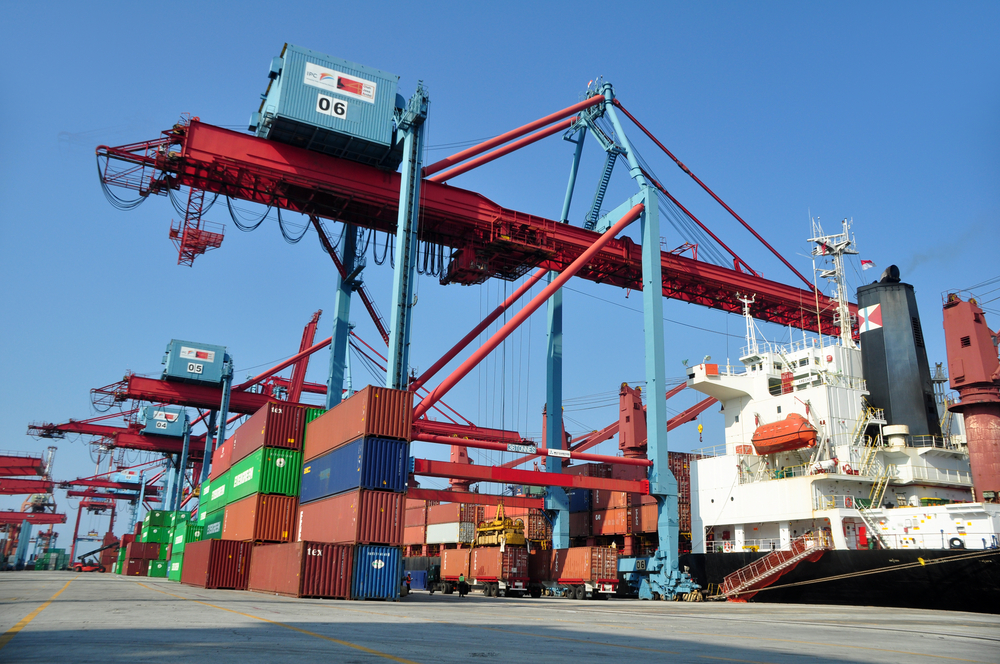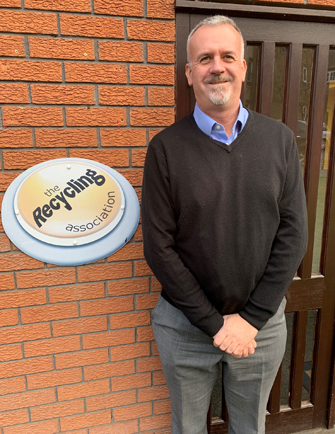Plans to implement a zero percentage outthrow policy for the import of waste paper and plastics into Indonesia for reprocessing have been described as ‘unworkable’ by the Recycling Association.
The association, which represents waste paper (or recovered fibre) and plastics recyclers and exporters, has appealed to the Indonesian Ministry of Environment and Forestry this week to reconsider the proposals.

Port activities in the Indonesian capital Jakarta
Indonesia is one of the latest Southeast Asian nations clamping down on material quality following enforcement initiatives in China, Vietnam and Malaysia.
Indonesia’s Ministry of Environment and Forestry had first proposed action to address contamination in imported material this Spring, and had been expected to firm up its position on the issue this month.
Specification
It was thought that the Indonesian government might align its policy with the ISRI (US Institute of Scrap Recycling Industries) scrap specifications, which would allow for a small percentage of contaminants in imported scrap.

Meeting a 0% outthrow specification for recyclables is ‘impossible under current techniques’ Simon Ellin of the Recycling Association has told the Indonesian government
However, exporters have been contacted by inspection authorities this week to be told that a 0% contamination policy is likely to be pursued – which recyclers say would amount to a de-facto ban on importing material into the country.
Indonesia has become one of the largest off-takers of recovered fibre – waste paper – and plastics from the UK in recent years. Packaging export figures show that as much as 55,000 tonnes of paper and 18,000 tonnes of plastic packaging waste were sent to Indonesia from the UK in the first half of 2019 making it the fourth largest export market for secondary commodities.
Responding to the measure this week, the Recycling Association has appealed to the Indonesian Ministry of Environment and Forestry expressing its concerns over the proposals and asking for a ‘practical solution’ to allow the continued movement of material into the country.
The Association noted that the UK is a 60% net exporter of fibre, while Indonesia is a 50% net importer, meaning that the proposals are likely to have a ‘significant impact’ on both countries.
Criteria
In the letter, Recycling Association chief executive Simon Ellin, wrote: “We firmly believe that these criteria must be workable for all parties. This is because it is impossible, given current processing technologies, to achieve 0%. We are working very hard to achieve de minimis contamination levels, but it is impossible, with current technology, to eliminate all non-target materials.”
“We believe that the trading of secondary commodities is a shared responsibility.”
Dr Ellin continued: “Accordingly, the recently announced 0% contamination policy for imports of recyclables is unworkable and, if implemented, will stop all legitimate trading of valuable secondary commodities to the detriment of both countries.
“We believe that the trading of secondary commodities is a shared responsibility. It is the responsibility of the UK to supply materials of the highest quality to Indonesia and it is the responsibility of our respective governments to regulate this and to develop workable standards.”
Dr Ellin has offered, along with Recycling Association president Craig Curtis, to travel to Jakarta to discuss the issues in greater detail with the Indonesian government.
The post Indonesian contamination proposals ‘unworkable’ appeared first on letsrecycle.com.
Source: letsrecycle.com Plastic


